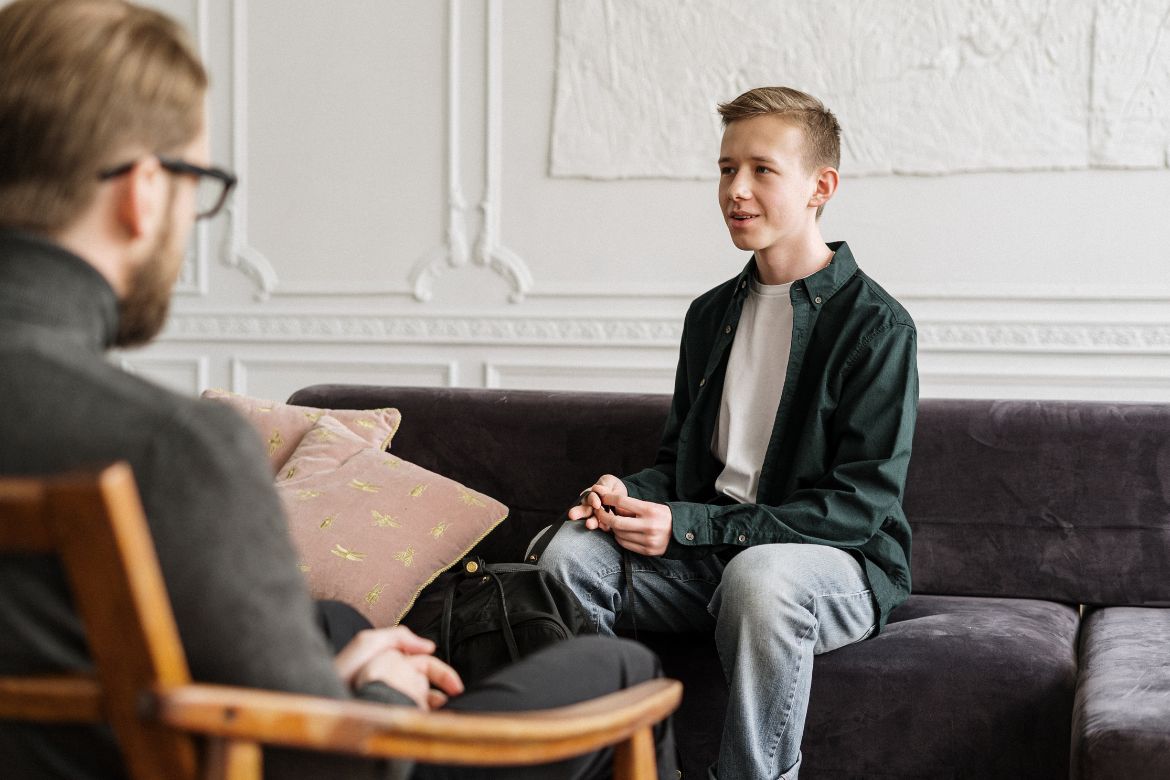Exploring the Positive Effect of Young Adult Therapy on Mental Health
The relevance of mental health during adolescence can not be overemphasized. Lots of teens face unique difficulties that can impact their psychological wellness. Therapy uses an organized approach to deal with these issues, fostering durability and self-awareness. Numerous healing methods deal with different needs, offering devices for dealing and analytic. As culture significantly acknowledges this requirement, the question remains: how can these therapeutic interventions form the future of teenage mental health and wellness?
Comprehending the Significance of Mental Wellness in Adolescents
While several grownups may overlook the psychological wellness difficulties encountered by teens, recognizing these issues is vital for promoting their growth. Teenage years is a pivotal phase defined by significant emotional, mental, and social changes. During this duration, young people navigate identification formation, peer relationships, and academic stress, every one of which can influence their psychological wellness. Researches show that psychological wellness issues, if left unaddressed, can result in lasting consequences, such as academic underachievement and stretched connections.
Understanding of psychological health and wellness throughout teenage years advertises very early intervention, making it possible for teens to establish healthy and balanced coping mechanisms. Positive psychological health and wellness not just improves self-esteem but likewise supports durability in encountering life's difficulties. By focusing on psychological health and wellness, family members, communities, and instructors can produce supportive atmospheres that urge open discussion, minimize preconception, and help with accessibility to necessary resources (teenager therapy). Eventually, an alternative method to teenage psychological health lays the structure for much healthier futures
Usual Concerns Dealt With in Teen Therapy
Teenager therapy frequently attends to a series of usual concerns that adolescents encounter, reflecting the complexities of this developmental stage. One considerable problem is anxiousness, which can materialize as social anxiousness or general anxiousness condition, frequently stemming from academic stress or social assumptions. An additional widespread concern is anxiety, characterized by sensations of unhappiness, hopelessness, and withdrawal from activities.
Furthermore, numerous teenagers grapple with identification expedition, including sexual preference and self-image, which can bring about complication and distress. Family dynamics, including disputes and interaction malfunctions, also play a crucial role in a teen's psychological wellness.

In addition, the influence of peer stress and bullying can cause feelings of seclusion and low self-esteem. Drug abuse is an additional important issue that therapists typically address, as teens may look for getaway from their psychological struggles. Jointly, these difficulties highlight the demand for supportive interventions during this transformative period.
Various Therapeutic Strategies for Teens
Various healing techniques are readily available to attend to the special requirements of adolescents, each offering distinctive approaches for promoting psychological development and resilience. Cognitive Behavior Modification (CBT) is frequently used, helping teenagers identify and change unfavorable idea patterns. Dialectical Behavior Modification (DBT) concentrates on psychological guideline and social effectiveness, especially advantageous for those experiencing intense feelings.

Furthermore, art and play treatment provide creative electrical outlets for self-expression, allowing teens to express feelings that could be tough to communicate vocally. Team treatment also offers as an encouraging setting where teens share experiences and create social skills.
Mindfulness-based treatments advertise present-moment recognition, aiding in tension reduction and psychological monitoring. Family treatment addresses dynamics that might add to a teenager's psychological health and wellness challenges, cultivating healthier communication within the family. Each technique can be customized to fit individual demands, assisting teens navigate their unique challenges successfully.
Benefits of Therapy for Psychological Strength
Therapy offers numerous benefits for teens seeking to construct psychological durability, especially as they navigate the complexities of maturing. counselling for teens. One substantial benefit is the development of dealing methods, which equip teenagers to take care of stress and anxiety and difficulty better. By finding out to recognize and verbalize their feelings, adolescents obtain better go to this site self-awareness, helping with healthier feedbacks to obstacles
Additionally, therapy fosters analytical skills, allowing teens to come close to difficulties with a useful state of mind. With directed discussions, they can explore various perspectives, boosting their ability to adjust to transforming conditions.

Healing atmospheres additionally urge the expression of feelings in a risk-free room, decreasing feelings of isolation and advertising psychological validation. As teens method durability in therapy, they usually experience raised self-confidence in their ability to deal with life's downs and ups. Ultimately, these advantages contribute to a stronger emotional structure, furnishing teens with the tools necessary for a healthier future.
Developing a Helpful Setting for Teenager Mental Health
Developing an encouraging setting for teenage mental health is important, as it lays the groundwork for resilience and emotional wellness. This setting can be fostered with open interaction, where teenagers really feel risk-free revealing their thoughts and sensations without concern of judgment. Parents, instructors, and peers play crucial read this functions in developing a culture of support and understanding.
Motivating positive partnerships and peer links can significantly improve a teenager's sense of belonging. Taking part in area activities and fostering synergy offers chances for social interaction and psychological growth. Educators can additionally contribute by executing psychological health programs that increase recognition and decrease preconception bordering mental health concerns.
Moreover, offering access to mental wellness resources, such as counseling services, makes certain that teenagers receive the help they require (teenager therapy). Inevitably, a nurturing setting, characterized by compassion and support, empowers teenagers to prosper mentally, leading the way for healthier futures
Often Asked Questions
Exactly How Can Moms And Dads Encourage Teenagers to Go To Treatment?
Parents can motivate teens to go to treatment by openly talking about psychological health and wellness, normalizing seeking help, offering details about the process, using to accompany them, and emphasizing the prospective advantages for personal development and psychological health.
What happens if a Teenager Declines to Get Involved in Treatment?
If a teen declines to participate in treatment, it's crucial for parents to remain person, interact openly, and discover the underlying factors for resistance. Encouragement and understanding can promote a willingness to reassess therapy in the future.
The Length Of Time Does Therapy Typically Last for Young Adults?
Treatment for teenagers commonly lasts between 6 to twelve sessions, though duration can vary based upon individual requirements, objectives, and development. Some may require longer-term support, while others accomplish their goals faster.
Can Therapy Aid With Academic Stress And Anxiety for Teenagers?
Therapy can significantly assist teens in taking care of academic tension by providing coping methods, boosting time administration, and boosting emotional strength. This support fosters a much healthier way of thinking, enabling them to navigate obstacles extra properly and attain academic success.
Are There Particular Age Limitations for Teen Therapy Procedure?
There are generally no rigorous age restrictions for teenager treatment sessions; nevertheless, services usually target people aged 13 to 19. Some therapists might additionally function with preteens, relying on details needs and situations.
Mindfulness-based therapies advertise present-moment awareness, aiding in tension decrease and emotional management. Family members therapy addresses dynamics that may add to a teen's mental wellness difficulties, promoting healthier communication within the family members system. Treatment offers numerous benefits for adolescents looking for to construct psychological durability, specifically as they browse the intricacies of growing up. Furthermore, treatment promotes analytic skills, enabling teenagers to approach difficulties with a constructive attitude. Treatment can dramatically aid content teens in managing academic anxiety by giving coping methods, boosting time administration, and improving emotional durability.